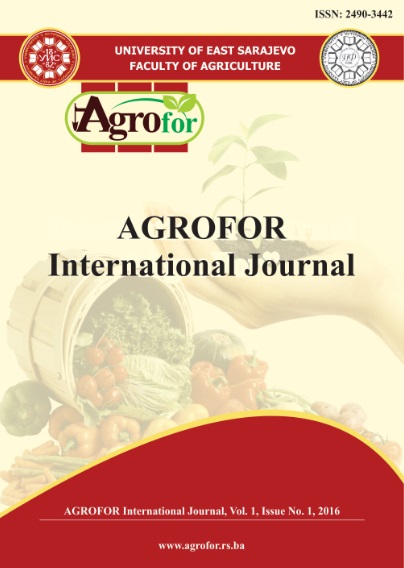THE INFLUENCE OF LOCALITY AND FERTILIZATION ON BUCKWHEAT QUALITY
DOI:
https://doi.org/10.7251/AGRENG1601006GAbstract
Buckwheat (Fagopyrum esculentum Moench.) is a plant species which has
been spreading in Bosnia and Herzegovina in the last decade. Because of its brief
vegetation period, this crop species is especially interesting for hilly-mountainous
regions. In 2015, the experiments were set in three localities (experimental field of
the Faculty of Agriculture “Kula”, private economy “Sando” on the Nišići plateau
and private economy “Jugović” in Mokro), and two variants of fertilization (control
variant – without the use of organic and mineral fertilizers and the use of
N60P60K70). The Slovenian sort Darja was used for the experiments. The analysis of
seed quality included the following analyses: humidity content (%), mineral
matters content (%), protein content, starch content, carbohydrates content. In
testing the qualitative characteristics for all localities and fertilizations we
determined: 14.2% of humidity in seed, 1.47% of mineral matter in a peeled
buckwheat grain, 11.88% of proteins in a peeled buckwheat grain, 51.9% of starch
in a peeled buckwheat grain and 71.87% of carbohydrates.

